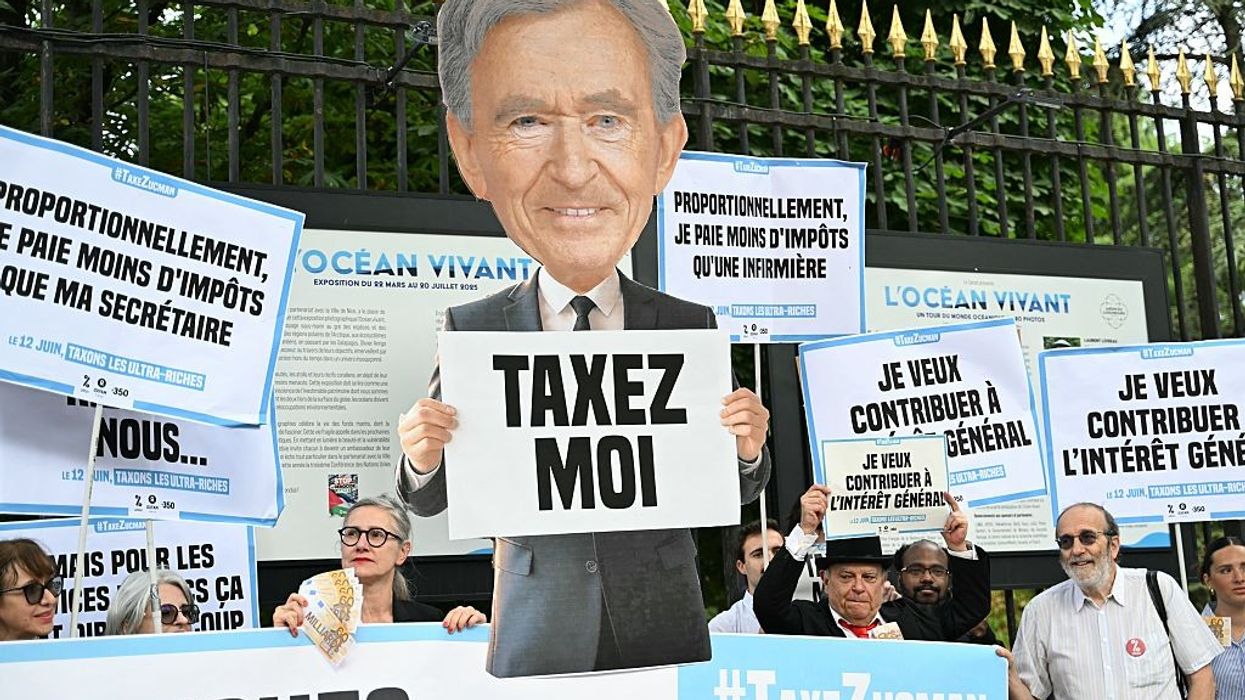Citing pioneering research from the E.U. Tax Observatory, the renowned economists noted that "ultrawealthy individuals pay around 0% to 0.6% of their wealth in income tax. In a country like the United States, their effective tax rate is around 0.6%, while in a country like France, it is closer to 0.1%."
Although the "ultrawealthy can easily structure their wealth to avoid income tax, which is supposed to be the cornerstone of tax justice," the strategies for doing so differ by region, the experts detailed. Europeans often use family holding companies that are banned in the United States, "which explains why the wealthy are more heavily taxed there than in Europe—though some have still managed to find workarounds."
The good news is that "there is no inevitability here. Not only is it necessary to impose a stronger burden of justice on billionaires, but more importantly, it is possible," argued the economists, who say that taxing the overall wealth of the ultrarich, not just income, is the key.
The wealth tax approach, they wrote, "is effective because it targets all forms of tax optimization, whatever their nature. It is targeted, as it applies only to the wealthiest taxpayers, and only to those among them who engage in tax avoidance."
The anticipated impact would be significant. As the op-ed highlights: "Globally, a 2% minimum tax on billionaire wealth would generate about $250 billion in tax revenue—from just 3,000 individuals. In Europe, around $50 billion could be raised. And by extending this minimum rate to individuals with wealth over $100 million, these sums would increase significantly."
That's according to a June 2024 report that French economist and E.U. Tax Observatory director Gabriel Zucman prepared for the Group of 20's Brazilian presidency—which was followed by G20 leaders' November commitment to taxing the rich and last month's related proposal from the governments of Brazil, South Africa, and Spain.
"The international movement is underway," the economists declared Monday, also pointing to recent developments on the "Zucman tax" in France. The French National Assembly voted in favor of a 2% minimum tax on wealth exceeding €100 million, or $117 million, in February—but the Senate rejected the measure last month.
The economists urged the European country to keep working at it, writing that "at a time of ballooning public deficits and exploding extreme wealth, the French government must seize the initiative approved by the National Assembly. There is no reason to wait for an international agreement to be finalized—on the contrary, France should lead by example, as it has done in the past," when it was the first country to introduce a value-added tax (VAT).
"As for the risk of tax exile, the bill passed by the National Assembly provides that taxpayers would remain subject to the minimum tax for five years after leaving the country," they wrote. "The government could go further and propose extending this period to 10 years, which would likely reduce the risk of expatriation even more."




